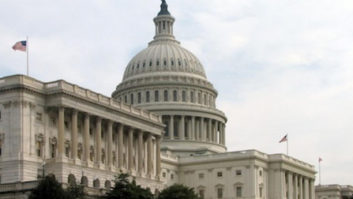The Senate Commerce, Science and Transportation committee endorsed a bill that would give ham radio operators who live in deed-restricted communities reasonable accommodations to erect antennas.
On Nov. 18, the committee approved the Amateur Radio Parity Act of 2015. It would direct the Federal Communications Commission to extend the rule relating to reasonable accommodation of amateur service communications to private land use restrictions. Two senators — Bill Nelson (D-Fla.) and Brian Schatz (D-Hawaii) — voted no but it passed on a voice vote. The bill is expected to be sent to the Senate floor. It is sponsored by Sens. Roger Wicker (R-Miss.), Richard Blumenthal (D-Conn.) and Al Franken (D-Minn.).
A twin bill was introduced in March in the House by Rep. Adam Kinzinger (R-Ill.), where it was referred to the House Energy and Commerce Committee. The measure is being considered by that panel’s Communications and Technology Subcommittee
The act would require the FCC to amend its Part 97 Amateur Service rules to apply the three-part test of the federal pre-emption policy known as PRB-1 to now include homeowners association regulations and deed restrictions, often referred to as covenants, conditions and restrictions (CC&Rs). Currently, PRB-1 only applies to state and local zoning laws and ordinances.
According to the American Radio Relay League, the FCC has been reluctant to extend the same legal protections to private land-use agreements without direction from Congress. “Our work is not finished on the Senate side of Capitol Hill, although this is a huge step forward,” ARRL President Kay Craigie said in a statement as the bill advanced.
The bill recognizes the interest the government has in the effective performance of amateur radio stations established at the residences of licensees.
“Amateur radio, at no cost to taxpayers, provides a fertile ground for technical self-training in modern telecommunications, electronics technology and emergency communications techniques and protocols,” the bill states. “Such stations have been shown to be frequently and increasingly precluded by unreasonable private land use restrictions, including restrictive covenants.”









